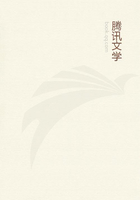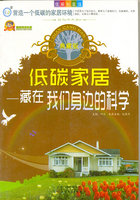IN 1846, George Sand published _Le Peche de M. Antoine_.
It was a very dull story of a sin, for sins are not always amusing.
The same year, though, she published _La Mare au Diable_.
People are apt to say, when comparing the socialistic novels and the pastoral novels by George Sand, that the latter are superb, because they are the result of a conception of art that was quite disinterested, as the author had given up her preaching mania, and devoted herself to depicting people that she knew and things that she liked, without any other care than that of painting them well.
Personally, I think that this was not so. George Sand's pastoral style is not essentially different from her socialistic style.
The difference is only in the success of the execution, but the ideas and the intentions are the same. George Sand is continuing her mission in them, she is going on with her humanitarian dream, that dream which she dreamed when awake.
We have a proof of this in the preface of the author to the reader with which the _Mare au Diable_ begins. This preface would be disconcerting to any one who does not remember the intellectual atmosphere in which it was written.
People have wondered by what fit of imagination George Sand, when telling such a wholesome story of country life, should evoke the ghastly vision of Holbein's Dance of Death. It is the close of day, the horses are thin and exhausted, there is an old peasant, and, skipping about in the furrows near the team, is Death, the only lively, careless, nimble being in this scene of "sweat and weariness." She gives us the explanation of it herself.
She wanted to show up the ideal of the new order of things, as opposed to the old ideal, as translated by the ghastly dance.
"We have nothing more to do with death," she writes, "but with life.
We no longer believe in the _neant_ of the tomb, nor in salvation bought by enforced renunciation. We want life to be good, because we want it to be fertile. . . . Every one must be happy, so that the happiness of a few may not be criminal and cursed by God." This note we recognize as the common feature of all the socialistic Utopias. It consists in taking the opposite basis to that on which the Christian idea is founded. Whilst Christianity puts off, until after death, the possession of happiness, transfiguring death by its eternal hopes, Socialism places its Paradise on earth.
It thus runs the risk of leaving all those without any recourse who do not find this earth a paradise, and it has no answer to give to the lamentations of incurable human misery.
George Sand goes on to expose to us the object of art, as she understands it. She believes that it is for pleading the cause of the people.
She does not consider that her _confreres_ in novel-writing and in Socialism set about their work in the best way. They paint poverty that is ugly and vile, and sometimes even vicious and criminal.
How is it to be expected that the bad, rich man will take pity on the sorrows of the poor man, if this poor man is always presented to him as an escaped convict or a night loafer? It is very evident that the people, as presented to us in the _Mysteres de Paris_, are not particularly congenial to us, and we should have no wish to make the acquaintance of the "Chourineur." In order to bring about conversions, George Sand has more faith in gentle, agreeable people, and, in conclusion, she tells us: "We believe that the mission of art is a mission of sentiment and of love, and that the novel of to-day ought to take the place of the parable and the apologue of more primitive times." The object of the artist, she tells us, "is to make people appreciate what he presents to them."With that end in view, he has a right to embellish his subjects a little. "Art," we are told, "is not a study of positive reality;it is the seeking for ideal truth." Such is the point of view of the author of _La Mare au Diable_, which we are invited to consider as a parable and an apologue.
The parable is clear enough, and the apologue is eloquent.
The novel commences with that fine picture of the ploughing of the fields, so rich in description and so broadly treated that there seems to be nothing in French literature to compare with it except the episode of the Labourers in _Jocelyn_. When _Jocelyn_was published, George Sand was severe in her criticism of it, treating it as poor work, false in sentiment and careless in style.
"In the midst of all this, though," she adds, "there are certain pages and chapters such as do not exist in any languaoe, pages that I read seven times over, crying all the time like a donkey."I fancy that she must have cried over the episode of the _Labourers_.
Whether she remembered it or not when writing her own book little matters. My only reason for mentioning it is to point out the affinity of genius between Lamartine and George Sand, both of them so admirable in imagining idylls and in throwing the colours of their idyllic imagination on to reality.
I have ventured, to analyze the _Comtesse de Rudolstadt_ and even _Consuelo_, but I shall not be guilty of the bad taste of telling the story of _La Mare au Diable_, as all the people of that neighbourhood are well known to us, and have been our friends for a long time. We are all acquainted with Germain, the clever farm-labourer, with Marie, the shepherdess, and with little Pierre.
We remember how they climbed the _Grise_, lost their way in the mist, and were obliged to spend the night under the great oak-trees. When we were only about fifteen years of age, with what delight we read this book, and how we loved that sweet Marie for her simple grace and her affection, which all seemed so maternal. How much better we liked her than the Widow Guerin, who was so snobbish with her three lovers. And how glad we were to be present at that wedding, celebrated according to the custom in Berry from time immemorial.














